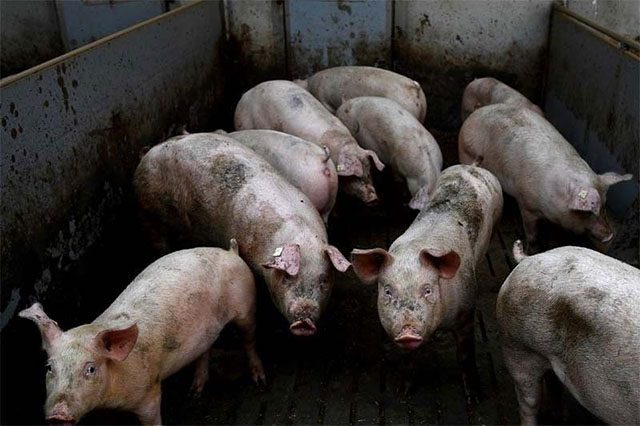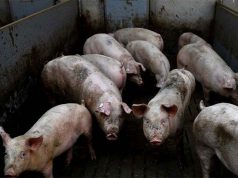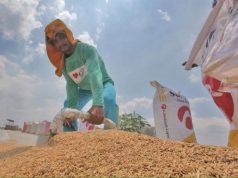
MANILA — Blood samples from pigs in backyard farms in Manila tested positive for African swine fever, the Department of Agriculture said on Friday, less than two weeks after it declared the country’s first outbreak of the disease.
The Bureau of Animal Industry has tested and confirmed the African swine fever virus in blood samples from two areas in Quezon City, a part of Metro Manila, said the agriculture department’s spokesman, Noel Reyes.
The Philippines, the world’s 10th-largest pork consumer and seventh-biggest pork importer, declared its first outbreak of the virus on Sept. 9, after detecting swine deaths and culling more than 7,000 pigs in towns in Rizal province, east of Manila.
There are also other areas being closely monitored by the agriculture department, Reyes said.
“We have received incident reports and we’re validating them,” Reyes told Reuters, saying the incidents involved pig sickness and deaths in some areas.
He declined to give further details.
There is no cure or vaccine for the deadly and highly contagious disease that kills almost every pig it infects, although it does not affect people.
In Quezon City, Mayor Joy Belmonte said the virus was possibly transmitted from dead pigs found floating in creeks and a nearby river.
Some hog farmers in Rizal were suspected of having dumped the dead pigs into the river in an attempt to hide the outbreak.
The Department of Agriculture said it is vigorously enforcing quarantine measures in areas declared as “ground zero”, where all pigs must be culled.
Mayor Belmonte, who had declared the pig deaths in Quezon City as an African swine fever outbreak before official confirmation from the agriculture department, said she would ban hog-raising in backyards.
Agriculture Secretary William Dar has appealed to backyard hog-raisers to immediately report all suspected cases of African swine fever to prevent the disease from spreading further.
The Southeast Asian nation since last year has imposed several measures to protect its $5 billion hog industry from the onslaught of African swine fever, including banning the entry of pork and pork-based products from more than a dozen nations.
As of July 1, the Philippine swineherd was estimated at 12.7 million pigs, including 8 million in backyard farms and 4.7 million in commercial operations, according to government data.
— Reporting by Enrico dela Cruz; Editing by Tom Hogue









